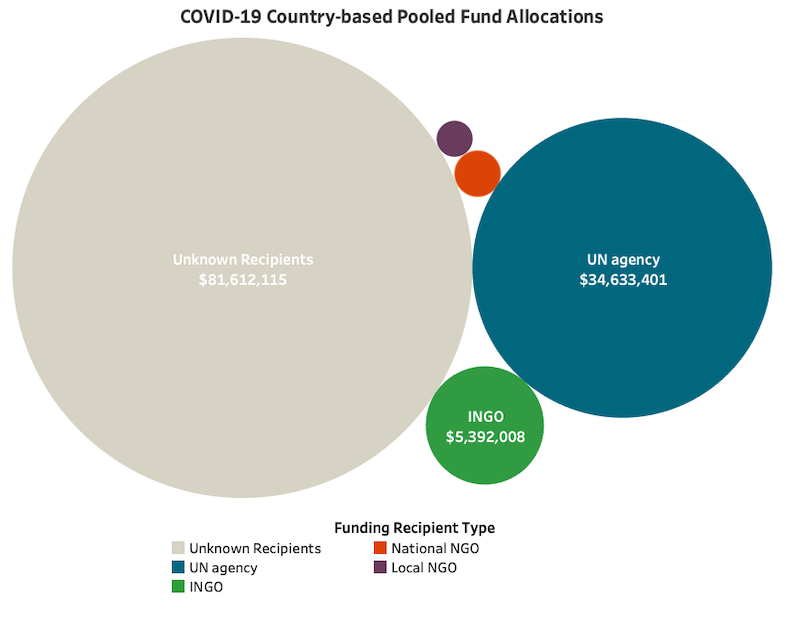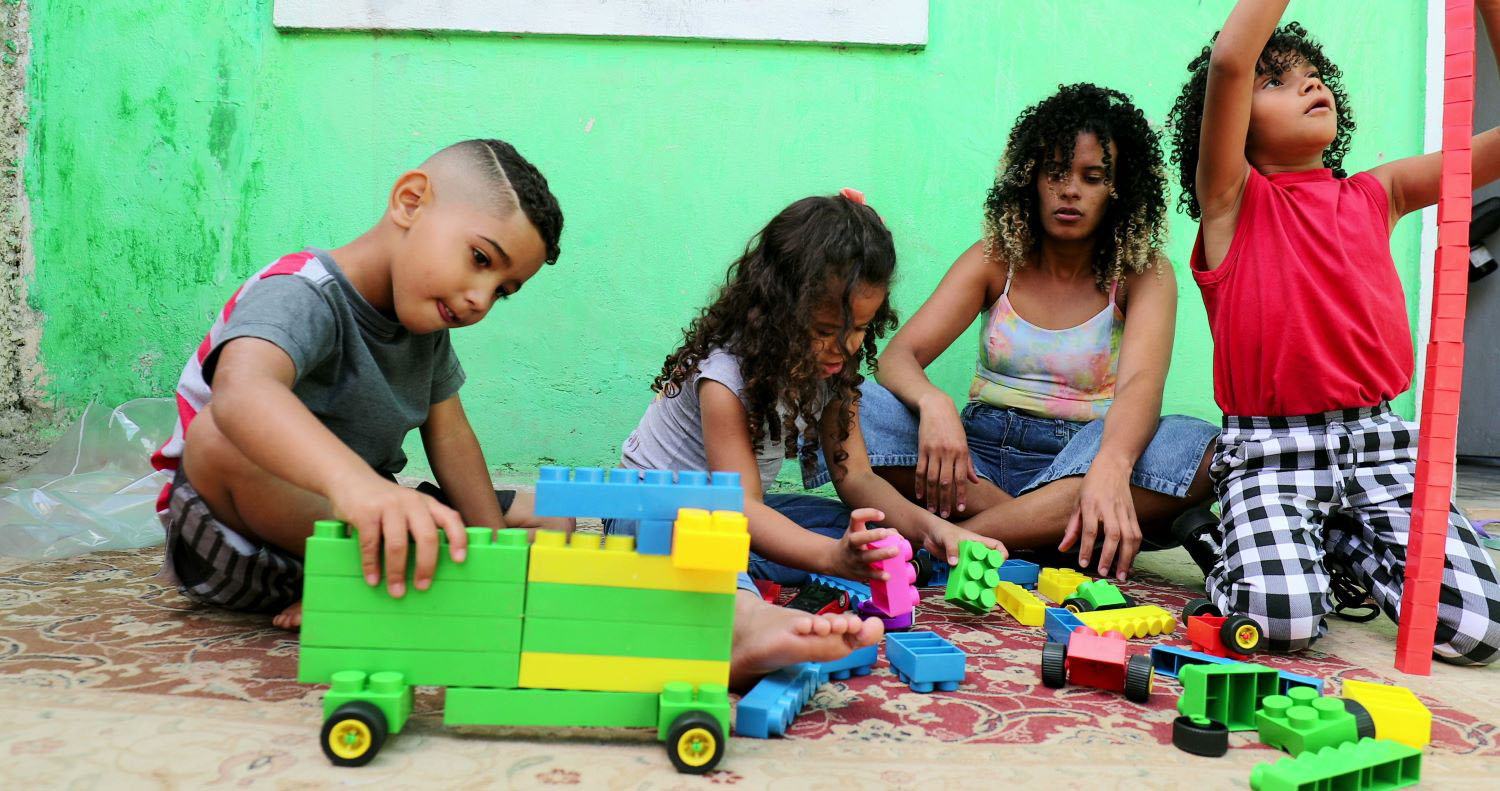Recommended

Blog Post
How can organizations and networks in Washington, DC, London, or Paris contribute to shifting power dynamics in international development in support of researchers, advocates, and practitioners in low- and middle-income countries (LMICs)? In August, Women of Color Advancing Peace and Security (WCAPS) and the Center for Global Development (CGD) convened an event moderated by Saara Bouhouche, Founder and Chair of WCAPS Race Across the Pond Initiative and Director of WCAPS France Chapter, on opportunities and barriers to increase localization in international development.
Localization was defined during the event as local actors taking ownership and driving efforts across policy and programming. The discussion featured a presentation from Rose Oronje and panelists Fridah Githuku, Lauren Rawlings, and Jamila White. From advocacy agendas and project implementation to data collection and research access, experts grappled with the various areas that need localization locally led development:
1. Adopt a holistic approach to localization
Rose Oronje, the Director of Public Policy and Communications at the Africa Institute for Development Policy, kicked off the discussion by noting that localization isn’t just about policymaking and program implementation: it needs to start with a focus on the actors doing the research to inform those policies and programs. Currently, researchers in LMICs face tremendous barriers to funding, and lack access to work conducted in their own backyard by other researchers (mostly White from high-income countries) whose work may be behind paywalls and subscription services. Likewise, the tendency for research to be published only in English limits its reach. Scarcity of accessible studies not only limits the quality of future local research but also prevents local policymakers from accessing an evidence base to inform their decision making, further undermining development goals.
However, as Dr. Oronje pointed out, there are ongoing efforts and opportunities to address this gap. Coalitions to promote open access publishing and bring researchers from LMICs into ongoing research efforts are a start. And researchers themselves can be deliberate about publishing in open access platforms, engaging diverse research networks, and submitting their research to journals run out of institutions in LMICs. Funders can directly support research initiatives (and platforms to share results) based in LMICs and ensure that government-funded research is open access and timely.
2. Be a bridge between local organizations and donors
Lauren Rawlings, Director for Economic Growth at Palladium, drew on her experience working at a USAID subcontractor to note three types of barriers to localization:
- structural, where domestic political agendas in donor countries place limitations on foreign aid prospects and priorities (e.g., compel narratives around foreign aid to be centered on serving the national security interests of high-income countries),
- administrative, where staffing, procurement and due diligence requirements limit possibilities for local actors to apply for and take the wheel of implementing U.S. government grants, and
- ideological, where racist ideals and stereotypes about who is “trustworthy” to implement projects and effectively allocate resources limit donors’ willingness to directly support local groups.
To tackle these barriers, implementing organizations that sit in high-income countries should use their understanding of donor agencies to serve as a bridge between local actors and donors, strengthening understanding and trust as a steppingstone to more direct relationships over time.
3. Put cash in people’s hands
Development professionals in high-income countries should recognize those impacted by development programs and policies as leaders with power, knowledge, and agency to exercise.
As Fridah Githuku, who leads a grassroots feminist advocacy network called GROOTS Kenya, put it, localization is about investing directly in those who experience poverty most acutely and seeing them as active participants and agents of change in development. Oftentimes, conversations around localization center on organizations based in high-income countries holding consultations with their “beneficiaries.” But in Githuku’s view, development professionals in high-income countries should instead recognize those impacted by development programs and policies as leaders with power, knowledge, and agency to exercise.
With this in mind, one method to support locally led development is conceptually simple: increase flexible, unrestricted, and direct funding to people and organizations. A reparations-based framework for foreign assistance makes a case for more cash transfers and other forms of direct funding—and so does years of research around cash benchmarking, comparing the per-dollar impact of development programs with that of a comparably sized cash transfer given directly to individuals or households (and opt for a direct cash transfer if the alternative can't be proven to have a greater impact). In 2015 USAID was notably the first bilateral donor to take up cash benchmarking for a water, sanitation, and hygiene (WASH) project in Rwanda, but the status quo doesn’t yet prioritize direct cash transfers, preferring instead to provide funds to US- and Europe-based organizations that then implement “capacity building” programs in LMICs.
Starting with capacity building is misguided from both an ethical and evidence-based perspective. Evaluating development programs against the simple act of giving people in need money should continue, and donors should prioritize direct and grassroots giving. Fridah specifically called for donors to focus on funding grassroots feminist organizations, despite the difficulty of measuring social impact through typical monitoring and evaluation frameworks. More flexible funding, when coupled with support for local research capacity, would acknowledge the power and agency of local actors in applying context-specific solutions and evaluation solutions, and could precipitate more homegrown solutions to development challenges.
4. Engage in solidarity work—and accept that this will mean ceding power
While this event centered on the expert perspectives of Black women, they shouldn’t be left to do the hard work of pushing for localization on their own. Panelists described the risks they face in speaking openly on issues of racism and colonialism—risks to themselves, their careers, and to their organizations. Jamila White, a Principal at BlaKQuity, emphasized the hurtful disconnect between organizations publishing statements in support of Black Lives Matter in 2020 while failing to act to hire, promote, and support people of color. Men and White people working in development need to use their positions of privilege to also call out inequities in the current systems. Allies, as underscored by Jamila, must acknowledge the tendencies toward self-preservation that perpetuate hierarchies in development.
Solidarity means acting in recognition that local communities are best placed to determine their own needs. As Lauren Rawlings put it, understand that living by your values could mean working yourself out of a job. Ultimately localization is about power, and international development allies must be honest about who needs to relinquish it.
Watch the recording of the event here.
Disclaimer
CGD blog posts reflect the views of the authors, drawing on prior research and experience in their areas of expertise. CGD is a nonpartisan, independent organization and does not take institutional positions.
Image credit for social media/web: Flickr





